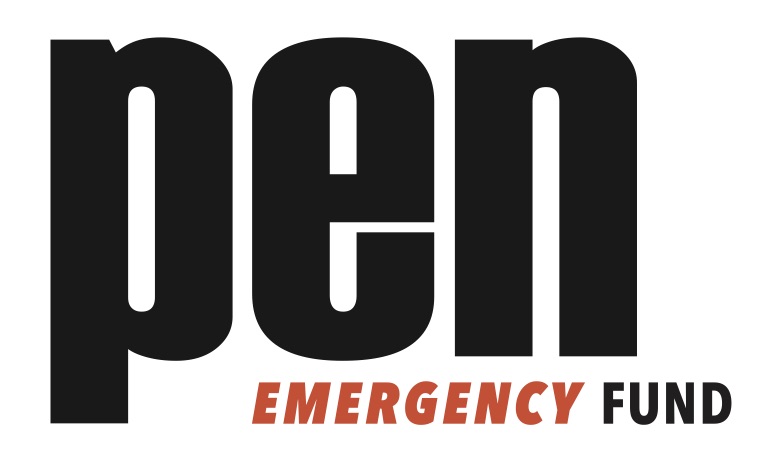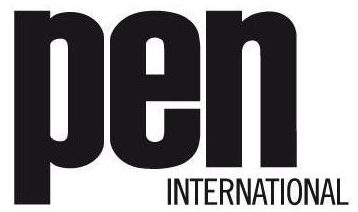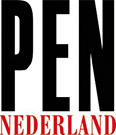The international writers’ association PEN was founded by the English writer Catherine Dawson Scott in 1921. The Dutch chapter, PEN Nederland, followed two years later and now includes more than 400 members. Its founder was the poet P.C. Boutens. Today there are roughly 145 centers in 104 countries throughout the world. The abbreviation PEN stands for: Poets – Essayists – Novelists. At a much later point Playwrights, Editors and Non-Fiction writers also became part of that abbreviation.
The initial aim of PEN was the promotion and free distribution of literature. Originally, it was largely a Western elite ‘club’ of writers. After World War II a second aspect soon emerged: in some countries, particularly in Eastern Europe, that free distribution was being seriously obstructed due to an absence of free speech. Today this second aspect has come to have prime importance to PEN centers. The organization is a politically independent association of writers, journalists, publishers and editors, comparable to Amnesty International in terms of its objectives, but with one difference: it stands up for colleagues in danger, anywhere in the world. Since its founding PEN has dedicated itself in many ways to supporting writers in countries where the right to free speech is violated by regimes.
PEN Emergency Fund
The Dutch writer A. (Bob) den Doolaard, who for many years played a prominent role in PEN International and was appointed its vice-president, pointed out that one element in the support was missing: the granting of material aid. And precisely that need, he argued, was felt by many writers experiencing a restriction of freedom in their work. Not being able to write, being boycotted, put in prison or having to flee does after all mean a lack of income as well, not only for oneself, but for the entire family. The idea of creating a special ‘writers-in-need-fund’ began with Den Doolaard. In 1971 he set up the PEN Emergency Fund, an international fund for writers in dire straits, based in the Netherlands. The fund provides assistance to seriously persecuted writers and writers in exile by way of a once-only contribution which enables them (and in special cases, their families) to make ends meet in an emergency situation. Every year dozens of writers throughout the world are helped. The fund operates in close collaboration with PEN International, which uses professional investigators to furnish the fund with information that serves as the basis for its decisions in granting emergency aid. In order to broaden the financial powers of PEN as an organization, Den Doolaard conceived the PEN Emergency Fund and opted to have the fund as a legal entity, placed under Dutch law. By doing so he wished to prevent internal politics and personal issues within PEN International from influencing aid-related policy.
Inititally the PEF was a solidarity fund. Den Doolaard devised this on the assumption that writers living in free and prosperous countries would want to support their colleagues who had to work under much poorer circumstances by contributing to a fund that would serve to finance aid to them. In the early days, the activities focused mainly on Eastern Europe, where Communist regimes used censorship as a means to silence political opponents. During that time, gifts were delivered and presented personally by couriers from the Netherlands. This was a costly and time-consuming method.
After Den Doolaard, the position of chair was held by professor of Dutch literature Gerrit Borgers, renowned author J. (Henk) Bernlef and the author and former professor of linguistics Rudolf Geel. Jan Honout has served as treasurer under every chair mentioned.
404
From 2017 to 2025, Job Degenaar (chairman) and Wim Jurg (treasurer) formed the Executive Board. Thriller writer and emeritus professor of linguistics René Appel served the board for 8 years. In 2026, Job Degenaar will be chair and Henske Marsman will be interim treasurer. Paulien Loerts, Charles den Tex, and Lucette ter Borg are the other board members. An international advisory board of seven renowned individuals closely involved with PEN International advises the PEN Emergency Fund.
When the chairman’s gavel was passed on to Bernlef in 1987, companies such as Western Union were making it possible to transfer money easily and quickly throughout the entire world. This came to an end, however, due to the events in New York on 11 September 2001. Because of those events such money transfers, which had played a significant role with payments among terrorists, were placed under the supervision of the CIA. As a result, institutions such as the PEN Emergency Fund which frequently made transfers of money to countries in the Middle East, Africa and China were soon considered suspicious. The fact that the fund’s transitions related solely to humanitarian aid being granted under the auspices of PEN International, a distinguished organization with an unblemished reputation, evidently made little difference to the security agency. Transfers via Western Union and other companies of this kind were therefore blocked from that point on. Nowadays transfers of money are made only via bank transactions.
The arrival of Bernlef as the new chair in 1987 brought a modernization of the organizational structure. Although Bernlef, like his predecessor Borgers, carried out practical tasks on his own along with treasurer Honout, he implemented a considerable expansion of the board. Chiefly with the aim of broadening the fund’s base within PEN, the board was expanded with members from a fair number of different, preferably well-endowed PEN centers. By doing this he hoped not only to tone down the Dutch image of the fund; his intention was also to encourage those centers to raise their contributions to the fund. When it became clear that the new board members were scarcely able to provide extra funding, while travel and accommodation costs related to the biennial meetings of the international group demanded a disproportionally large part of the budget, it was decided that this should end. Bernlef fortunately managed to draw new sponsors such as Oxfam Novib and Lira, which made the fund less dependent on individual gifts and contributions from the various PEN centers. This came as a relief, since contributions from the individual PEN centers were declining. Under his direction, collaboration with the professional researchers of the Writers in Prison Committee at PEN International was moreover intensified.
Thanks to its simple structure, the Emergency Fund is able to operate extremely quickly and decisively, thus distinguishing itself from nearly all other organizations concerned with assisting writers and journalists. The decision-making process of other NGOs usually takes much longer, while the contributions granted are no higher than those of the PEF. Added to this is the fact that, despite its professional standards, the fund continues to be managed by volunteers.
Journalists and bloggers
To an increasing degree in recent decades, journalists in particular have become victims of persecution in countries fraught with political and social tensions. The criteria used in acknowledging a request for financial support are as follows:
- conscientious
- generally recognized as writer/journalist
- is he or she in immediate danger?
- has that danger been caused by the practice of his or her profession?
On succeeding Bernlef in 2002, Rudolf Geel initiated a campaign to attract new sponsors. Organizations concerned with freedom of expression, such as the Democracy & Media Foundation and the Lira Fonds in the Netherlands, promised their support. Oxfam Novib and the Gieskes-Strijbis Fonds also supported the fund, but had to withdraw it as a result of a decrease in the subsidy provided by the Dutch government. The search for new financial backers continues under the new board that has taken shape since 2017, given that the fund is gradually eating into its general reserves.
The information above is largely an excerpt of a more extensive historical account by Rudolf Geel and Jan Honout, which can be found in the 2016 Annual Report.



